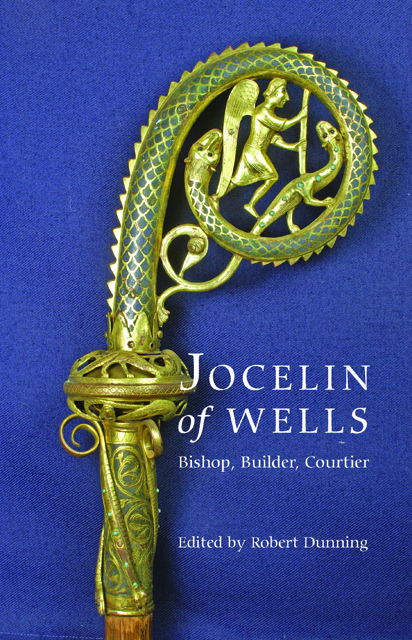1 - Jocelin of Wells: the making of a bishop in the reign of King John
Published online by Cambridge University Press: 02 March 2023
Summary
Strange as it may seem to open an account of the election of Bishop Jocelin of Wells with personalities of the twentieth rather than the thirteenth century, it would be an act of lèse-majesté were I to fail to acknowledge that what follows is not so much my own work but a mere précis of that of two of the greatest of twentieth-century ecclesiastical historians. The first of these giants was a local man, Joseph Armitage Robinson, born at Keynsham, professor of divinity at Cambridge, dean of Westminster and after his controversial removal from that (still controversial) office, dean of Wells from 1911 to 1933. Although principally remembered today as a patristics scholar, famed for his rediscovery of early Christian manuscripts in libraries from London to Vienna, in turning his attention to the thirteenth-century church Robinson not only brought into commission all, or very nearly all, of the relevant unpublished sources relating to Bishop Jocelin’s election, but supplied a quite masterly reconstruction of Jocelin’s background and early career. Robinson’s essay ‘Bishop Jocelin and the Interdict’, first delivered in 1913 and published a decade or so later, remains a definitive statement of the facts. Besides elucidating the circumstances of Jocelin’s election, Robinson also sought to explain the ins and outs of that most vexed and perplexing of jurisdictional disputes, between the bishops of Bath and Wells and the monks of Glastonbury abbey, that will necessarily occupy us in part of what follows. What little Robinson left unsaid here was comprehensively stated in the work of the second of my twentieth-century giants: Christopher Cheney, himself professor at Cambridge, mentor to several of the contributors to this present volume and, in his Pope Innocent III and England, author of a definitive account not only of Anglo-papal relations but of the wider history of the English church in the early years of the thirteenth century.
With Robinson and Cheney already ahead of me in the field, what then remains for me to do here save to draw attention to the magnificence of their contributions? In what follows, I shall attempt two tasks. Spared by Jane Sayers and Diana Greenway from the need to supply an outline of Jocelin’s career as bishop, I shall attempt to explain why Jocelin still matters to our wider understanding of the early thirteenth-century church.
- Type
- Chapter
- Information
- Jocelin of WellsBishop, Builder, Courtier, pp. 9 - 33Publisher: Boydell & BrewerPrint publication year: 2010

